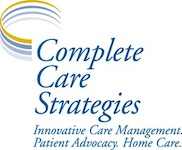By bringing families together with appropriate long-term care environments and educating clients about options, geriatric care managers help seniors find the most appropriate solutions to their needs.
Reprinted from Assisted Living Today – Jan/Feb 2001
“My mother needs a nursing home.”
“I want to take care of dad at home, no matter what.”
“My mother is becoming so forgetful that I’m afraid that she’ll blow up the house and herself.”
These comments are typical of calls professional geriatric care managers receive each week. Families are worried about their loved ones and feel ill equipped to manage care decisions alone. It’s no surprise they’re confused. Most of today’s seniors and their children grew up equating facility-based care with nursing homes. For them, that is what long-term care placement means, and they are reluctant to pursue that option.
Although there’s been a recent explosion of new living choices, it’s difficult for anyone but those in the industry to understand the distinctions between life care and assisted living, personal care, and skilled care.
Common misconceptions include the following:
- Staying at home is the best possible choice. Despite individual circumstances that clearly imply otherwise, many families have considerable conflicts about long-term care placements.
- Medicare will pay for long-term care.
- Adult children don’t need help; they can navigate the choices alone.
Fortunately, when families do realize they need help, geriatric care managers are ready to step in. These human services professionals often are trained in social work, counseling, or nursing. Their goal is to educate the elder client and his or her family about the options and to provide support and counseling. A geriatric care manager helps the family find a solution that mitigates emotional conflict and facilitates peace of mind for all concerned.
Through an extensive interview, geriatric care managers identify and assess the specific needs of a geriatric client by uncovering medical, financial, legal, cognitive, emotional, and care needs. With this information in hand, they can coordinate, monitor, and directly provide services to the client.
Jennie Gordon (not her real name), 93, was referred to a geriatric care manager by her son, who lives in New York. He informed the care manager his mother required nursing home placement.
When the care manager met with Mrs. Gordon in her apartment at an independent living retirement community, the care manager discovered a feisty, articulate woman who managed her medication with a filing system and maintained her checkbook and her bills each month. Although she suffered from arthritis and a host of other age-related maladies, it was clear a nursing home was not the ideal solution. Financial issues also made her placement more challenging.
With some research, the care manager located a just-opened assisted care facility that was attached to a nursing home. Mrs. Gordon was placed in this facility, where her funds would sustain her for the next three years, and a nursing home bed was guaranteed, predicated on either her health or finances.
The care manager helped the family locate a company to provide packing and moving services, and a medical equipment company that could provide her a wheelchair. Mrs. Gordon’s son was pleased with the decision and has reported his mother’s quality of life couldn’t be better.
How it Works
Geriatric care managers develop a list of facilities they can recommend with confidence. They must be able to count on these residences to provide a fit for clients with various needs. To do so, geriatric care managers create working alliances with long-term care facilities.
Christine Gasper, executive director of Chancellor Park, a CareMatrix assisted care facility in suburban Philadelphia, equates the care manager to a college or wedding planner, a professional who can be “objective and has the expertise and experience to make informed decisions on behalf of the client.”
The care manager is “more likely to be listened to and can often supersede family conflicts,” Gasper adds. The case manager many function as a surrogate family member when a resident doesn’t have a family member nearby, she explains.
Elders and their families are referred to geriatric care managers by hospital social workers, doctors, lawyers, and trust officers; and geriatric care managers are hired by the family. Fees for services range from $60 to $150 per hour depending on the care manager’s expertise and geographic location.
Choose a geriatric care manager carefully. Most are members of The National Association of Professional Geriatric Care Managers. Members are required to meet minimal criteria for membership and hold at least a bachelor’s or nursing degree in human services. They are categorized according to their education and experience (associate, professional, advanced professional, and fellow) and adhere to standards of practice and a code of ethics they must uphold. Credentialing exams have recently become available.
What’s Ahead
Geriatric care management reportedly is one of the nation’s fastest-growing professions. As a result, companies are being developed to capture this market on a national level. Those who serve the senior community are well aware of the demographics and the surge of seniors who will impact long-term care residences in the next 20 years.
Undoubtedly, the growing relationship between the geriatric care management community and the assisted care community will continue to evolve, affording new opportunities to provide excellent care for seniors and solace to families.
About the Author
Beverly Bernstein Joie is the founder and president of Complete Care Strategies, a senior care management company serving Philadelphia and its surrounding communities. A Certified Aging Life Care Manager with more than 20 years of experience, Beverly has worked in senior care since 1994, both in assisted living communities and in private practice. She is a member of the Aging Life Care Association and was a former president of the Philadelphia Chapter.
Complete Care Strategies consists of care managers, specialized human service professionals, who advocate and direct the care of seniors and others facing ongoing health challenges. Working with families, its expertise provides the answers at a time of uncertainty. Along with its licensed home care division, it can help clients safely remain at home under the watchful eye of skilled professionals. Families are afforded an integrated model of care that, with guidance and advocacy, lead them to the actions and decisions that ensure quality care and an optimal life for those they love

